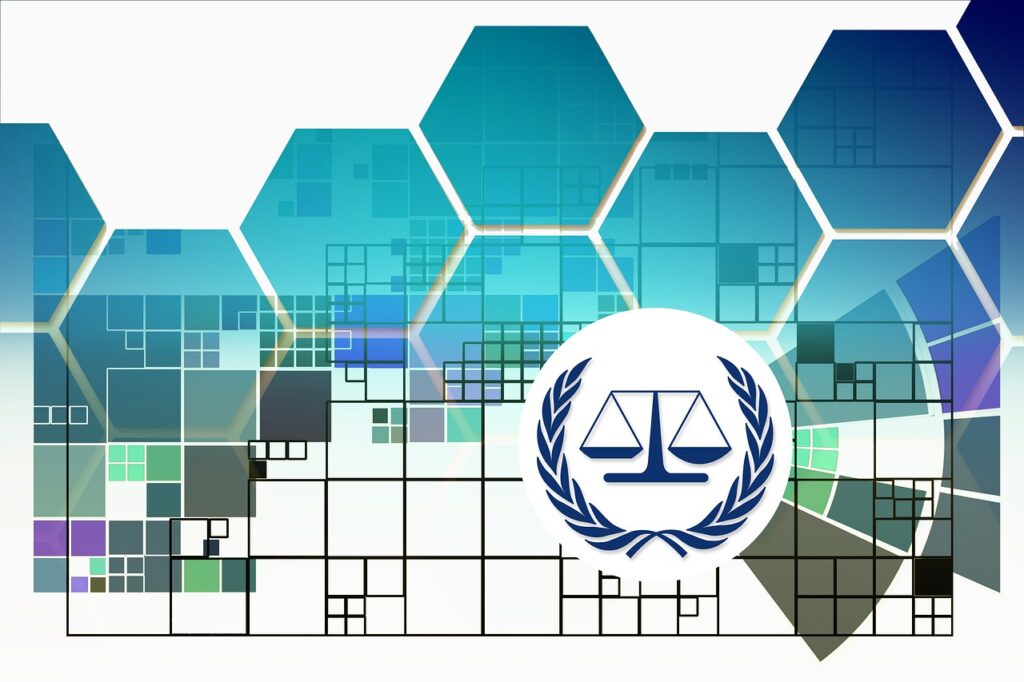Published On: 14th December, 2023
BENCH- L. Nageswara Rao, B.R. Gavai
BACKGROUND
Covid 19 was a deadly viral disease which claimed millions of lives while simultaneously disrupting the life of uncountable individuals through social, and economic disruptions caused by it. The world witnessed one of the greatest collaborations and unity in humankind for the development of vaccines and their administration. The challenging times called for restrictions on some of the rights of an individual given public health. One such restriction, mandatory vaccination of individuals arose in this writ petition.
FACTS OF THE CASE
The petitioner, Jacob Puliyel, was a member of the National Technical Advisory Group on Immunization (NTAGI) and was advising the Government of India on vaccines. He filed a writ petition in the Supreme Court to direct the Government to release the segregated data of every phase of the trial, disclose detailed minutes of the meetings of the Subject Expert Committee and the NTGAI, discloses the reasoning behind the DCGI decision of granting approval or rejecting the proposals and the documents submitted with the proposal, to release post vaccination data and to disseminate it so the public can form an informed decision and to make the provision of mandatory vaccination for accessing public services, unconstitutional.
ISSUES CONTESTED
- Does mandatory vaccination violate bodily integrity under Article 21?
- Whether the segregated clinical data was disclosed in the public domain?
- Whether the collection and reporting of AEFIs improper?
- How effective is vaccination for children?
SUBMISSIONS AND COURT’S ANALYSIS
- Mandatory vaccination– Petitioner contended that the government can encourage people for voluntary vaccination but coercive vaccination is unconstitutional, with reference to the orders of the Government of NCT of Delhi, Madhya Pradesh, Maharashtra, Tamil Nadu. The petitioner emphasized the natural immunity acquired post-infection and the studies concluding that both vaccinated and non-vaccinated are at equal risks for transmitting the virus to others. On the other hand, the Union government contended that vaccines are a safe and effective measure against the virus and that any indulgence by the court would increase vaccine hesitancy, whereas State governments laid down their arguments on the grounds of legality and efficiency. They argued that it is within their legal authority to restrict fundamental rights for the greater public good and also submitted that the main purpose behind mandatory vaccination was to safeguard individuals from life-threatening complications if they got infected as supported by different reports of WHO, Lancet and others.
The court while dealing with the issue, also dealt with the conflict between the right of privacy and public health. The court held that-
- bodily integrity is protected under Article 21 and no individual can be forced to get vaccinated.
- Personal autonomy provides for freedom to determine its own life and includes the right to refuse any medical treatment under individual health.
- Persons can choose not to get vaccinated but if there is a likelihood that they can transmit it or lead to mutations and thereby, develop new variants, then the government can impose restrictions on the rights of the individuals subject to the criteria of reasonableness and proportionality.
The Court observed that though vaccination has remained an expert-recommended opinion in view of new variants, no submissions were made by the Union and state governments to justify the restrictions imposed on unvaccinated individuals, in the light of newly emerging data showing that the risk of transmission is similar in both unvaccinated and vaccinated individuals. Thereby, in view of the submissions, the Court concluded that the restrictions observed were not proportionate. It also suggested the state governments review the orders, imposing restrictions on unvaccinated individuals in view of changing situations along with new scientific studies. The court also suggested the mechanism of “health pass” as in France for its implementation in India. While concluding, it advised that any observation of the Court is based on the current scenario and it doesn’t impede, the lawful exercise of the executive’s power, to impose such proportional restrictions on unvaccinated individuals as the situation so demands.
2– Disclosure of segregated clinical data in public domains– The petitioner argued that the segregated datasets were not available in the public domain and contested that their absence it was preventing individuals from making informed decisions. He also alleged that there was a lack of transparency and approvals for COVAXIN and COVISHIELD were given without due procedure.
Union government, on the other hand, contended that decisions were taken by experts and trials were conducted under the guidance of the regulatory bodies, complying with the international standards. The main focus was on making the vaccines available for the public because of which there was delay, in making the data available in the public domain.
The court observed that phase III trial data was published, fulfilling the statutory requirements and concluded that subject to the privacy of the individual subjects involved in the testing, the clinical data should be made available to the public under the extant statutory regime without undue delay while giving the judgment, the court, however, doesn’t concur with the view of the petitioner that the vaccines were approved in haste.
3- Improper collection and reporting of AEFIs – The petitioner argued that phase III trials involved only a limited number of individuals which cannot show a large increase in adverse events and the government’s reasoning of classifying already known effects as vaccine-related effects while not considering other AEFIs were flawed. He also contended that adverse event reporting in India was not transparent and efficient.
The respondent, Union of India, clarified that case details and photocopied reports were uploaded on the SAFEVAC and CO-WIN portals. Union also developed an alignment with the Pharmacovigilance Programme of India for receiving information regarding AEFI cases from adverse drug reaction monitoring Centres in medical colleges and large hospitals. All the cases and reports so, received were subjected to causality assessment analysis by experts.
The court observed that there was a well-defined procedure established in the country for reporting and analysing the adverse events happening post-inoculation of the vaccination and considered that the allegations of the petitioner were without merit while affirming their trust in Union of India to maintain the appropriate level of requirements review and assessments of AEFIs and directed the Union to facilitate the knowledge about these adverse events to the public through a virtual platform.
4- Vaccination for children– The petitioner contended that the risk of administering vaccines to children outweighs their benefits and serological studies already show that a large number of children have already acquired antibodies.
The Union, On the other hand, submitted that paediatric vaccination is advised by global agencies such as WHO and the same is also favoured by Indian experts. Keeping in mind, the risks involved, clinical trials were conducted and only after that paediatric vaccination was initiated in a phased manner.
The court opinioned that it lacks the required expertise to adjudge the safety of paediatric vaccination as in its view, it is not competent to second guess the expert’s studies and educated opinions on which the government is making its policies and also validated the decision of the government for paediatric vaccination as it supports the prevalent world consensus.
RATIO DECIDENDI
The court ruled that the government have the required authority to apply restrictions on the fundamental rights subject to unreasonableness, arbitrariness and proportionality on the grounds of public health. The court dismissed the petition by concluding that the bodily integrity provided under Article 21 encompasses the right to refuse any medical treatment, however, it is not sacrosanct as the government can impose restrictions on this on grounds of public health and the restrictions imposed were not arbitrary. The court also directed the Government to publish the required data sets to foster intelligent decision-making and also concluded that the government is taking sufficient measures to report adverse events through virtual and physical means. The court also had no control over paediatric vaccinations as it is supported by scientific consensus.
CONCLUSION
The court while dismissing the writ petition emphasized the importance of the right to bodily autonomy and also compared it with the needs of the public. It strikes a delicate balance between two competing values to provide the individual a choice for medical treatment while also ensuring that the community as a whole is not affected as supported by its direction to the Union to publish data sets in public domains. The awareness of the court about its lack of expertise in scientific matters along with its trust in the executive wing to formulate policies based on scientific inputs reaffirms its position as the guardian of the Constitution and its purpose of maintaining the constitutional values.
Reference(s):
- E-SCR
- https://lawfoyer.in/jacob-puliyel-v-union-of-india
- https://corporate.cyrilamarchandblogs.com/2022/05/coercive-vaccination-explaining-the-jacob-puliyel-v-union-of-india-case/
- https://indianlegalsolution.com/jacob-puliyel-v-union-of-india/
- https://www.livelaw.in/top-stories/supreme-court-half-yearly-digest-2022-constitution-of-india-207819




